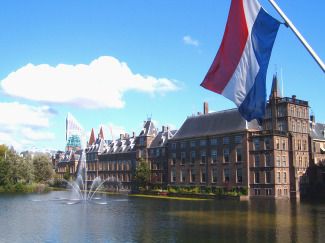Dutch hidden subsidies, an environmental risk

In debates on environmental policy the complementary need for removing environmentally harmful subsidies has received little attention. Such subsidies typically increase the size and pollution intensity of economic activities, often without clear, compensating social benefits. The environmental impact of direct or on-budget subsidies has been well recognized. Indirect or off-budget subsidies, not visible in government budgets, are at least as important. Research on this topic is scarce. This research reports findings on greenhouse gas (GHG) and acidifying emissions arising from off-budget subsidies in the Netherlands and show that subsidies particularly in agriculture, energy and transport contribute importantly to GHG emissions. Effective climate policy therefore needs to consider removal of off-budget subsidies.
Public subsidies can be broadly defined as all government interventions that directly or indirectly cause the price for consumers to be below, or for producers above, undistorted market price. As opposed to on-budget subsidies, off-budget subsidies are often not recognized as being subsidies. This in turn hinders the assessment of their environmental consequences. Off-budget subsidies can be categorized as follows:
1. Tax subsidies: deductions, exemptions or special tariffs, like reduced energy taxes for specific sectors or low VAT rates for specific product categories.
2. Public provision of goods and services below their cost, like infrastructure.
3. Capital subsidies, like loan guarantees, debt forgiveness, and government loans with "soft conditions" (e.g., below-market interest rates).
4. Price regulation, like minimum prices for agricultural products.
5. Quantity restrictions, like regulating a minimum use of a certain input or product.
6. Trade barriers, like import quota and export credits.
Whereas public subsidies are often introduced with a certain aim, it is not necessarily true that their implementation is preceded by a careful assessment of all costs and benefits. A complete evaluation of the impact of public subsidies ideally involves considerations of policy effectiveness, economic efficiency and environmental and social implications. The presence of substantial environmental impacts of subsidies is not a sufficient condition for their removal. It is true though that a sizeable environmental impact requires a substantial counterbalancing economic or social advantage to motivate the respective subsidy. When the negative effects of a subsidy outweigh its positive effects, the subsidy is called perverse and from a social welfare perspective it would be desirable to remove it.
The study offers a quantification of environmental damage due to support policies in the form of off-budget subsidies in the sectors agriculture, energy and transport. The reason for this selection is that many sizeable off-budget subsidies in OECD countries can be found in these sectors. Moreover, there is no clear trend of removing this government failure. While on-budget subsidies have received much attention, the role of off-budget subsidies is at least as important.
The results illustrate that off-budget subsidies can bring about relatively large environmental impacts. This is particularly true for the subsidies provided through the energy tax, milk price support, and designation of agricultural land. The excise tax exemption for aviation fuels has the largest environmental impact. We found that off-budget subsidies contribute to more than 30 % of the policy targets specified by the Kyoto Protocol for CO2 emissions reduction by the Netherlands. This suggests that policy makers should take serious notice of the potential role of removing off-budget subsidies as a strategy of effective climate policy.
References
"Environmental Harm of Hidden Subsidies: Global Warming and Acidification". C. van Beers and J.C.J.M. van den Bergh. AMBIO 38(6): 339-341 (2009).

